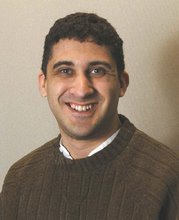Part of my problem with the previous 10 points on political theology is that while I like the phrase about working for a world that asymptotically approaches the
In reply, I have a quote from James Fowler, whom I've been reading for Souljourners. Here is quotes Peter Hodgson's God in History:
“My thesis is that God is efficaciously present in the world, not as an individual agent performing observable acts, nor as a uniform inspiration or lure, nor as an abstract ideal, nor in the metaphorical role of companion or friend. Rather, God is present in specific shapes or patterns of praxis that have a configuring, transformative power within historical process, moving the process in a determinate direction that of the creative unification of multiplicities of elements into newe wholese, into creative syntheses that build human solidarity, enhance freedom, break systemic oppression, heal the injured and broken, and care for the natural. A shape or gestalt is not as impersonal and generalized as an influence or a presence, since it connotes something dynamic, specific and structuring, but it avoids potentially misleading personifications of God’s action. What God “does” in history is not simply to “be there” as God, or to “call us forward,” or to assume a personal “role,” but to “shape”—to shape a multifaceted transfigurative praxis. God does this by giving, disclosing, in some sense being, the normative shape, the paradigm of such a praxis. This is what I mean by the divine gestalt.”


No comments:
Post a Comment